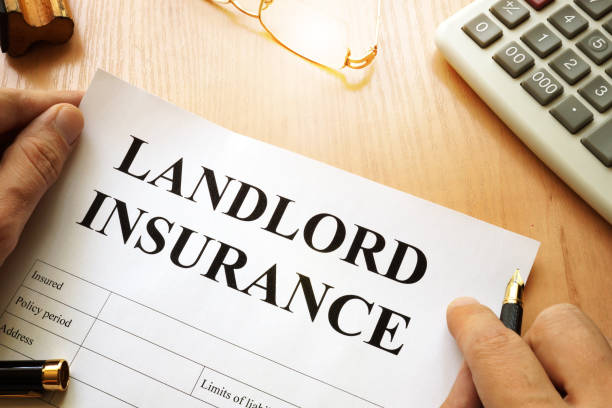Introduction:
In the dynamic world of technology, drones have become integral for various purposes, from capturing breathtaking aerial shots to supporting industrial operations. However, as drones take flight, the need for comprehensive insurance coverage becomes increasingly apparent. Insurance for drones goes beyond protecting the unmanned aerial vehicle (UAV) itself; it safeguards operators, businesses, and bystanders from potential risks. In this guide, we’ll explore the critical importance of drone insurance, the types of coverage available, and how businesses and hobbyists can navigate the skies with confidence.
Understanding the Risks:
Drones, while versatile and efficient, pose inherent risks that necessitate insurance coverage. Some common risks associated with drone operations include:
- Accidents and Collisions: Drones can collide with obstacles, structures, or other aircraft, leading to damage or destruction. Accidents may occur due to technical malfunctions, operator errors, or unexpected weather conditions.
- Property Damage: A drone malfunction or operator error could result in damage to third-party property. Whether it’s a residential structure, a vehicle, or other assets, property damage claims can arise from drone-related incidents.
- Injuries to People: Drones flying in populated areas pose a risk of injury to people on the ground. This includes operators, bystanders, or individuals within the vicinity of the drone’s flight path.
- Data Breaches and Privacy Concerns: Drones equipped with cameras raise privacy concerns, and operators may inadvertently capture sensitive information or infringe on individuals’ privacy. Data breaches or privacy violations can lead to legal liabilities.
Types of Drone Insurance Coverage:
- Liability Insurance: Liability insurance is a fundamental component of drone insurance. It covers third-party bodily injury and property damage claims arising from drone operations. This includes medical expenses, legal fees, and settlement costs in the event of a lawsuit.
- Hull Insurance: Hull insurance, also known as drone hull and liability insurance, covers physical damage to the drone itself. Whether the damage results from a crash, collision, or other covered perils, hull insurance ensures the cost of repairs or replacement is covered.
- Payload Coverage: Payload coverage extends protection to any equipment or cargo carried by the drone. This is particularly relevant for commercial drones that may transport goods, sensors, or other valuable payloads. Payload coverage safeguards against damage or loss of the transported items.
- Non-Owned Coverage: Non-owned coverage is essential for businesses that use drones but may not own the UAVs themselves. This coverage protects businesses from liabilities associated with drones operated by third parties, such as contractors or subcontractors.
- Data Breach and Privacy Insurance: Given the increasing concerns about data breaches and privacy violations, some drone insurance policies include coverage for related liabilities. This may encompass legal expenses, fines, and damages resulting from unintentional data breaches or privacy infringements.
- Personal Injury Coverage: Personal injury coverage addresses claims related to non-physical harm, such as defamation, invasion of privacy, or emotional distress caused by drone operations. This coverage is particularly relevant for businesses using drones for marketing or surveillance purposes.
Navigating Drone Insurance for Businesses:
- Evaluate Operational Risks: Before selecting a drone insurance policy, assess the operational risks associated with your specific drone activities. Consider the environment in which you operate, the frequency of flights, and the potential impact of drone-related incidents on third parties.
- Understand Coverage Limits: Carefully review the coverage limits provided by insurance policies. Ensure that the limits align with the potential financial liabilities associated with your drone operations. Consider the scale of your business and the magnitude of potential claims.
- Customize Coverage to Your Needs: Drone insurance providers often offer customizable coverage options. Tailor your policy to the specific needs of your business, including the type of drone, payload, and the nature of your operations. Customization ensures that you have comprehensive coverage where it matters most.
- Verify Compliance with Regulations: Regulatory compliance is crucial in the drone industry. Ensure that your insurance policy aligns with local and national regulations governing drone operations. This includes requirements for liability coverage and any specific insurance mandates for certain applications, such as aerial photography or surveying.
- Consider Industry-Specific Requirements: Certain industries, such as agriculture, construction, or energy, may have unique insurance requirements for drone operations. Understand any industry-specific considerations and ensure that your insurance coverage addresses these requirements adequately.
Navigating Drone Insurance for Hobbyists:
- Check Homeowners Insurance: Hobbyist drone operators should first check their homeowners or renters insurance policies. Some homeowners insurance policies may offer limited coverage for hobbyist drone activities, but it’s essential to understand the extent of coverage and any limitations.
- Explore Dedicated Drone Insurance: While homeowners insurance may provide some coverage, hobbyists can explore dedicated drone insurance options to fill potential gaps. Dedicated policies often offer broader coverage and higher limits specifically tailored to drone-related risks.
- Understand Liability Coverage: Liability coverage is crucial for hobbyist drone operators, as it protects against third-party bodily injury and property damage claims. Ensure that the liability coverage in your drone insurance policy aligns with your risk tolerance and potential financial exposure.
- Review Coverage for Physical Damage: Hobbyists may want to consider coverage for physical damage to their drones. While this is typically less of a concern than liability coverage, it can provide financial protection in case of a crash or accidental damage to the drone itself.
- Check Exclusions and Limitations: Thoroughly review the exclusions and limitations of the drone insurance policy. Understand any conditions that may void coverage, such as flying in restricted areas or engaging in activities that violate regulations. Complying with these conditions is crucial to maintaining coverage.
Conclusion:
As drones continue to revolutionize industries and hobbies, the importance of insurance for drones cannot be overstated. Whether you’re a business using drones for commercial purposes or a hobbyist exploring the skies, comprehensive insurance coverage is a prudent investment. By understanding the risks associated with drone operations and selecting the right insurance coverage, operators can navigate the skies with confidence, knowing that they are protected against potential liabilities and unforeseen incidents. In a rapidly evolving technological landscape, drone insurance serves as a vital tool for responsible and secure drone use, ensuring a harmonious integration of UAVs into our daily lives.


